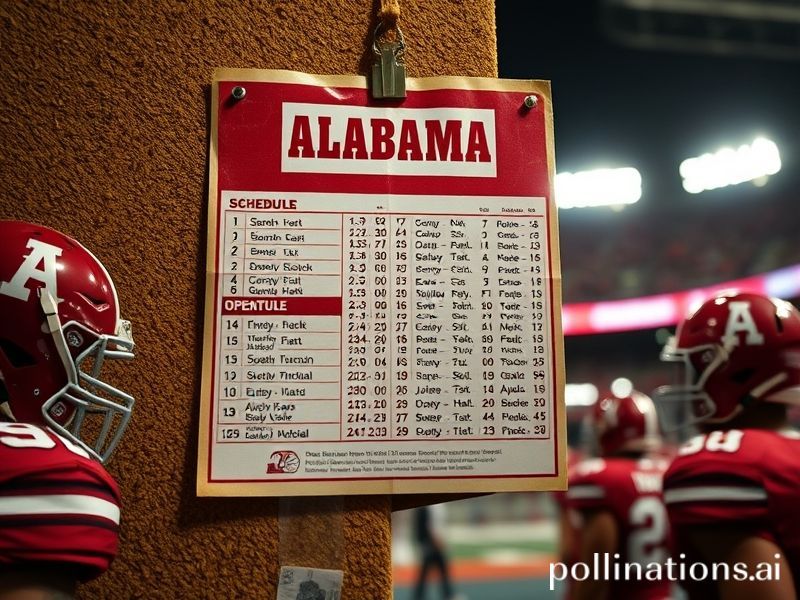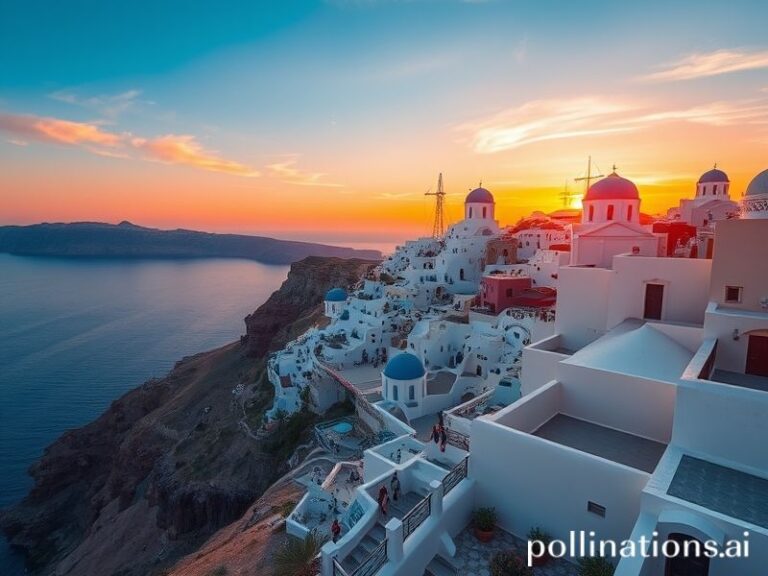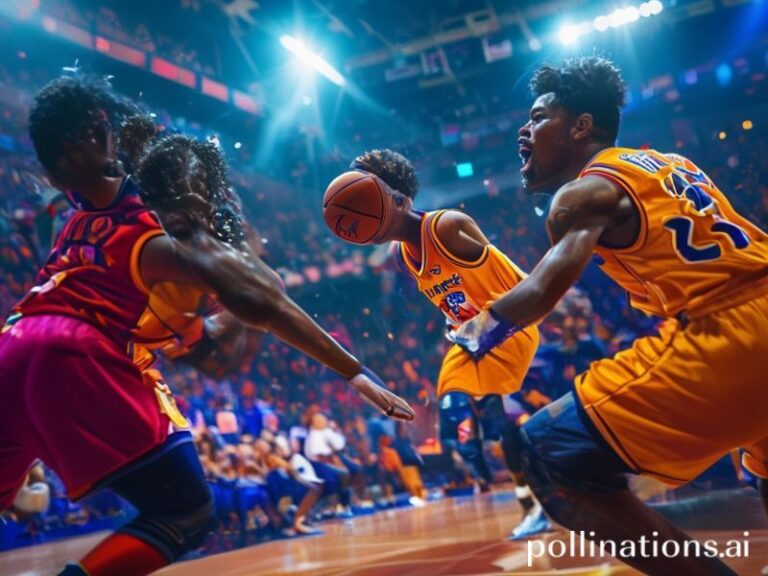The World According to Tuscaloosa: How Alabama’s Football Schedule Quietly Runs the Planet
From the banks of the River Seine to the neon canyons of Seoul, the autumn ritual is the same: a hush falls, smartphones glow, and millions of otherwise rational adults rearrange their circadian rhythms around a patch of grass in Tuscaloosa, Alabama. The Crimson Tide’s 2024 schedule—released last week like a papal bull—has already ricocheted through global markets, diplomatic calendars, and the collective cortisol levels of expatriate bars from Dubai to Dublin.
Consider the logistics. When Alabama kicks off at 2:30 p.m. Central Time against Western Kentucky on 31 August, it will be 9:30 p.m. in Johannesburg and 3:30 a.m. Tuesday in Tokyo. Tokyo’s Shibuya sports pubs—those fluorescent confessionals where salarymen weep into ¥900 Budweisers—have begun printing “Roll Tide” in katakana for the occasion. Meanwhile, the Saudi sovereign-wealth fund, ever on the lookout for soft-power opportunities, is rumored to be negotiating a “neutral-site” game in Riyadh for 2026. The proposed venue: a temperature-controlled pyramid with a retractable dome, because nothing says college tradition like air-conditioned sand.
The schedule itself is a masterpiece of geopolitical theater. The Tide’s marquee non-conference matchup—versus Notre Dame in South Bend on 2 November—will double as a summit for two brands that have colonized imaginations far beyond their zip codes. In rural Argentina, priests still pass collection plates under framed photos of Knute Rockne; in Lagos nightclubs, DJs splice “Rammer Jammer” into Afrobeats drops. One can almost picture centrist pundits calling the game “a transatlantic values summit,” while the rest of us recognize it for what it is: two private militias of 300-pound teenagers in paid-for armor, clashing for the right to sell more bobbleheads.
Less commented upon is the Week 3 tilt against South Florida in Tampa—a city whose very existence feels like a dare from a real-estate Ponzi scheme. Here, Alabama will encounter the existential dread of playing a “home” game 600 miles from campus in a stadium named after a crypto exchange that filed Chapter 11 last year. International viewers, already puzzled by American geography, must now accept that “home” is a fungible concept, like democracy or airline legroom.
Naturally, the Southeastern Conference slate carries the weight of the world—or at least the portion of it that subsists on Chick-fil-A and unpaid labor. The 12 October visit to Tennessee’s Neyland Stadium will coincide with the IMF’s annual meeting in Marrakech, forcing several G7 finance ministers to choose between sovereign-debt restructuring and watching a freshman quarterback dodge litigation. Sources say Japan’s chief cabinet secretary has already booked a suite in Knoxville, reasoning that watching 102,000 people in day-glo orange scream at children is “excellent preparation for next year’s G20.”
Then there is the mercifully scheduled bye week on 26 October, strategically placed before the LSU game. Across Europe, this date has become a de-facto mental-health holiday. German factory workers have negotiated “Sabbatical für Saban,” allowing them to stream ESPN in the breakroom while pretending to calibrate BMW engines. In France, the CGT union briefly threatened a strike unless the government declared “le weekend sans football américain” a protected cultural practice. Macron conceded after aides showed him Alabama’s TV ratings in Provence.
All of which underscores the uncomfortable truth: the Alabama football schedule is no longer a regional curiosity but a planetary gravitational force. It bends supply chains (Vietnamese factories now time Nike jersey drops to coincide with SEC media days), distorts foreign policy (the U.S. State Department once delayed a Syria briefing because the press corps was watching overtime versus Georgia), and provides the one lingua franca capable of uniting a fractured world: shared Schadenfreude when Alabama loses.
Come January, when the Tide inevitably reaches yet another playoff, the globe will once again divide into two camps: those who pray for Alabama’s defeat as a stand-in for cosmic justice, and those who simply want to see the dynasty end before the sun expands and swallows Earth. Both groups, of course, will tune in. Because if we’re all going down in flames, we might as well watch it happen in 4K, sponsored by a beer company none of us can legally buy on game day. Roll existential dread, roll.







